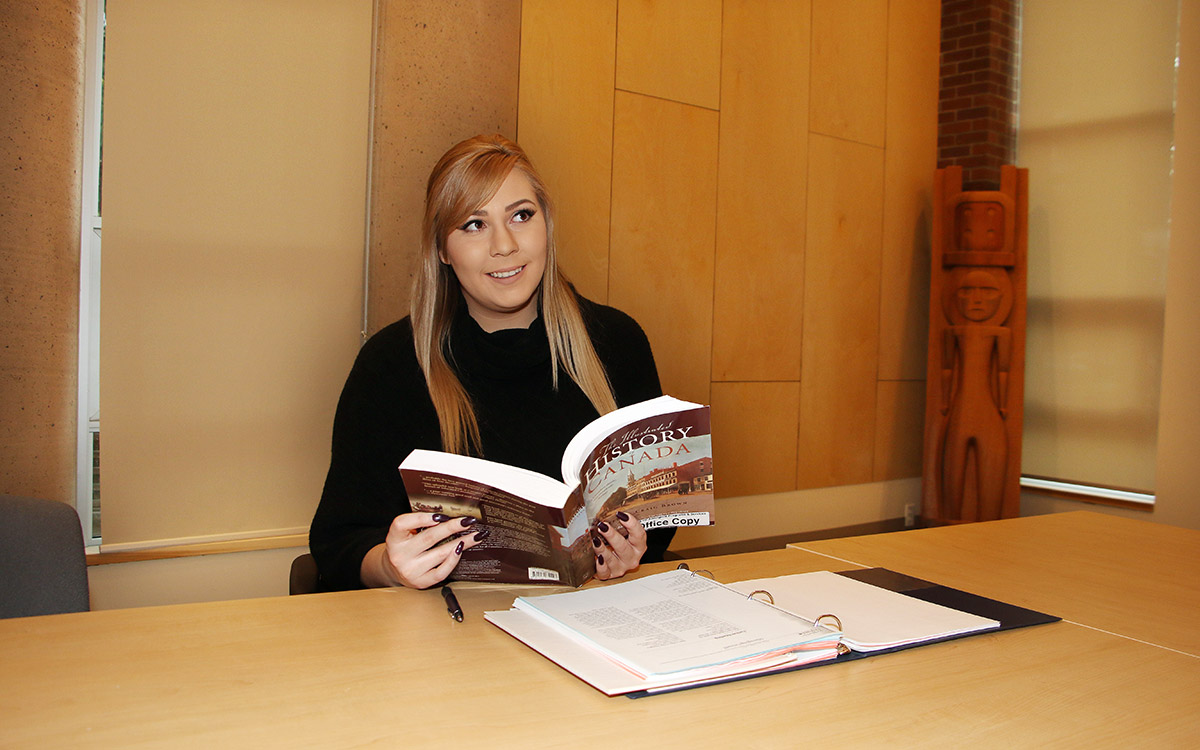When Jessie Jensen enrolled in a new program at the Justice Institute of British Columbia (JIBC), she saw it as a way to gain new skills and take steps toward a new career.
She never dreamed her courses would help her save another life so soon.
Jessie, 20, lives with her parents who care for a six-month-old foster baby. Recently, the infant girl had a fever that spiked before she suddenly stopped breathing.
Despite having only just completed her JIBC First Responder course, it was Jessie who performed CPR and got the baby breathing again before paramedics arrived.
“You don’t think you’re going to use these things right away,” she said of the course, just days after the incident. “It was the scariest moment of my life.”
The First Responder course is part of JIBC’s Justice and Public Safety Certificate program for Aboriginal learners which started in January 2016 in conjunction with Native Education College (NEC). The program, from tuition to textbooks, is fully funded by government through the BC Ministry of Advanced Education, the Employment Services and Supports (ESS) stream of the Canada-BC Job Fund Agreement, and Indigenous and Northern Affairs Canada. To be eligible, students must identify as being of First Nation, Metis or Inuit heritage and have an interest in justice and public safety careers.
You don't think you're going to use these [lessons] right away. It was the scariest moment of my life
Jessie, a member of the Lake Babine Nation in Burns Lake, BC, had been interested in a policing career since high school when talks with a school liaison officer piqued her interest in law enforcement.
“He told me good things will happen to good people. That stuck with me a long time.”
Then after graduating from high school in Prince George, she did labour work on construction sites with her dad until she was injured in a car accident and forced to focus on her recovery. She eventually was trained and certified to be a traffic control person (flagperson) and worked in that role for a few months until the opportunity to study at JIBC came along.
For Jessie, the government funding was key. Not having to worry about the cost of tuition and textbooks meant she could afford to leave her job to further her education.
Since then, she’s become more convinced than ever that she wants to work in policing helping to solve and prevent crime. She noted she’s always aware of her surroundings and managed to foil an attempted carjacking while waiting in a fast food drive-thru. She noticed the suspect approach her vehicle and locked the doors before he could open them, then immediately called 911.
She wants to join the RCMP for the opportunity to move around to a variety of communities and see the country. It would also give her the chance to work in her home community, which is policed by RCMP.
In the meantime, she’s absorbing as much as she can from her JIBC courses, from dealing with the public and learning about the Canadian criminal justice system and restorative justice, to First Nations studies and employment strategies.
The program has given her more confidence and helped her focus her sights on a potential career.And already, she’s put her lessons to use, saving a young life.
“I’m definitely grateful to be given this opportunity to do that.”
For more on JIBC’s services for Aboriginal learners, visit Aboriginal Student Services.
